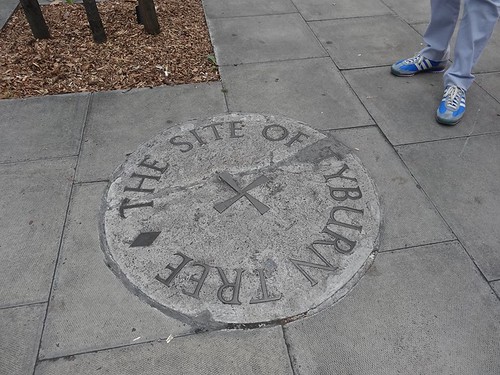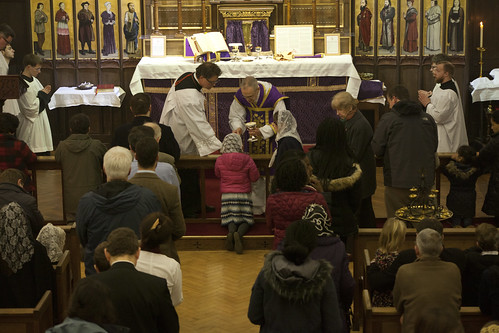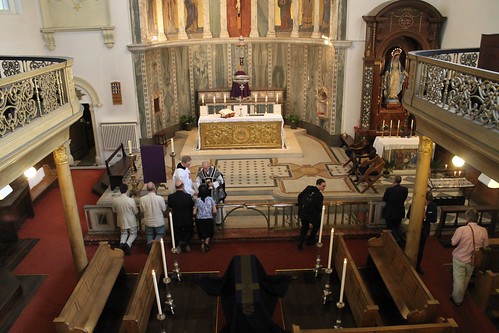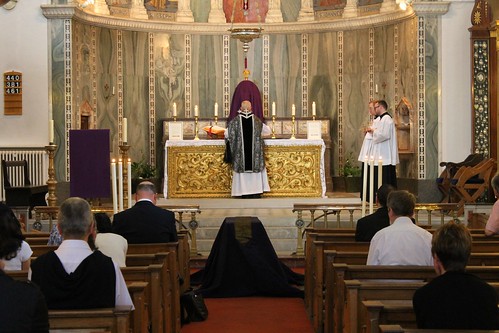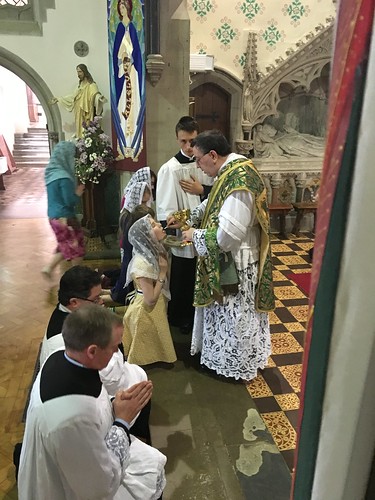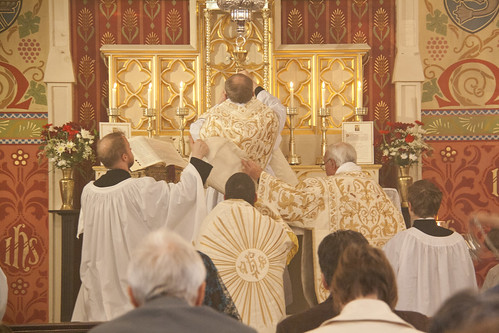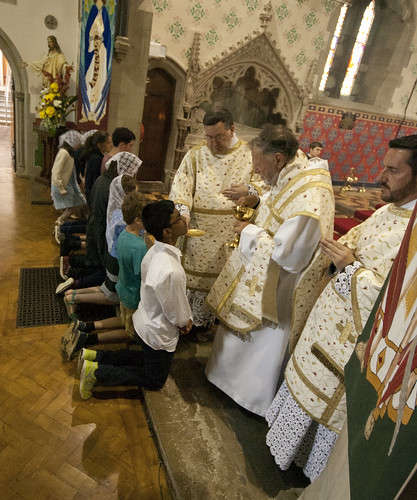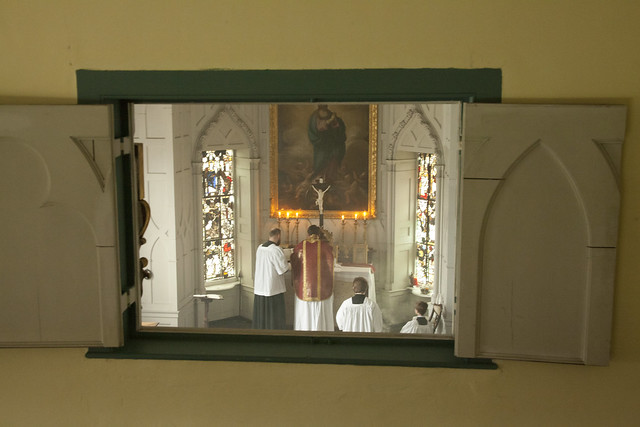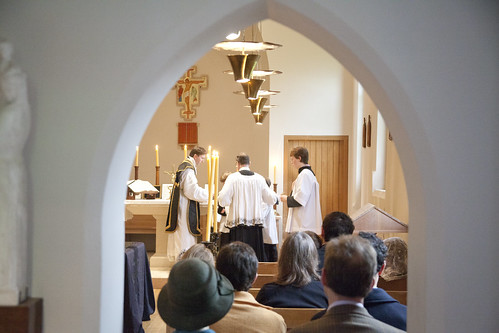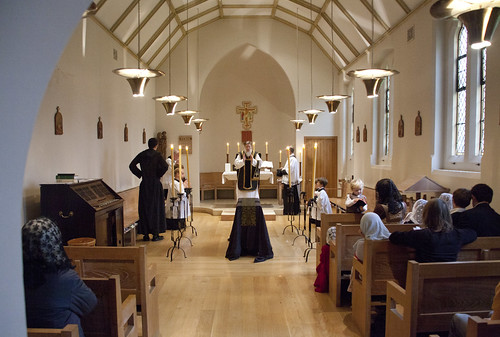You can book here.
 |
| The priory at Boars Hill |
The Retreat will run between Friday 10th and Sunday 12th February. Our chaplain is Fr Richard Biggerstaff, the Director of the St Barnabas Society, and he will give us spiritual conferences throughout the weekend and also be available for Confessions. There will, of course, be daily Mass in the Extraordinary Form, and other devotions as well.
Sewing sessions will mainly be dedicated to mending and making vestments. We don't expect retreatants to have any previous experience of this, so complete beginners need not be put off! All materials will be provided. There will also be a small (very small!) shop selling sewing equipment, so if you haven't a sewing kit or need to replenish the one you've got, there will be ample opportunity to invest. Please do bring a basic sewing kit with you, if you have one: small sharp scissors, needles, pins, tape measure, a thimble if you use one.
